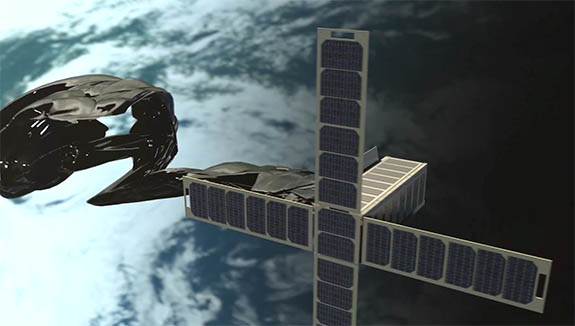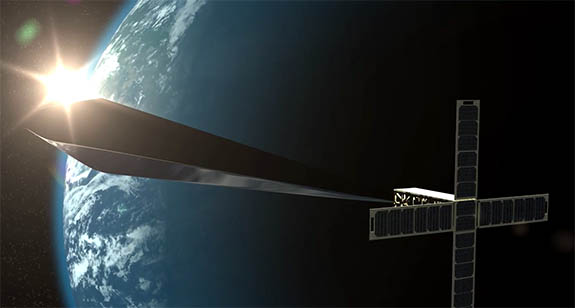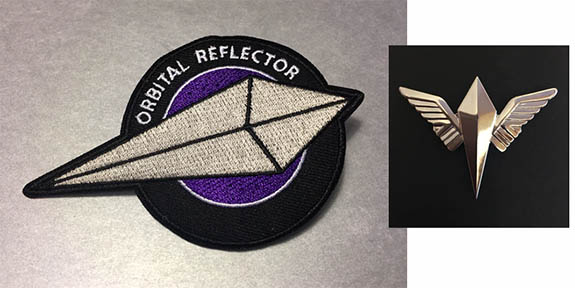For the first time ever, a satellite will be launched into space solely as an artistic gesture. The brainchild of artist Trevor Paglen, the 100-foot-long inflatable sculpture looks like an elongated diamond and can reflect sunlight while orbiting the nightside of the Earth.

The reflections off the Mylar-like surface will be so bright that skywatchers will be able track the "diamond" moving across the night sky without the aid of a telescope.

The tightly packed, deflated sculpture is scheduled to make its space voyage aboard Elon Musk's SpaceX Falcon 9 rocket in the spring of 2018. A satellite holding the "Orbital Reflector" will jettison from the rocket at a distance of 350 miles from the Earth. Once deployed, the satellite will shoot out a 4-inch "brick" holding the sculpture, which will then inflate to its full size.

The artist and engineers behind the project debated whether the reflector should be a sphere or a diamond. They finally settled on the diamond shape because it could deliver "bigger, brighter and better in flight than a sphere."

"I think that one of the most important things that art can do is give you a reason to look at something, almost give you permission to look at something," Paglen stated. "The Orbital Reflector project is saying 'Here, I'm going to give you a reason to look up at the sky and to think about what it is that you're looking at.'"

Skywatches will be able to locate the reflector using a free app called Star Walk 2. The app can deliver alerts when the high-flying attraction passes over a particular area. The sculpture will circle the Earth once every 90 minutes. The best visibility will be when the sun reflects off the "diamond" in the few hours after dusk and before dawn.
The project, which has a total budget of $1.3 million, is a collaboration of Paglen and the Nevada Museum of Art. A Kickstarter campaign supporting the project is within a few thousand dollars of its $70,000 goal, with five days still left in the campaign. Other sponsors already have contributed 60% of the total budget. The Kickstarter campaign is helping to close the budget gap.
Amanda Horn, director of communications at the Nevada Museum of Art, told Space.com that more important than providing a major source of funding, the Kickstarter campaign is intended to be the official global announcement of the project and provides an "opportunity for people to participate."

Contributors to the project can earn official stickers, patches, stick pins and more.
"An artwork that pushes the boundaries of what we traditionally think of as 'art' challenges the way we engage with the world," explained the project's Kickstarter page. "Orbital Reflector encourages all of us to look up at the night sky with a renewed sense of wonder, to consider our place in the universe and to re-imagine how we live together on this planet."
The diamond-shaped balloon will stay in orbit approximately two months, after which it will fall through the Earth's atmosphere and burn up.
Credits: Images courtesy of Trevor Paglen/Nevada Museum of Art; Screen captures via Kickstarter.com/projects/nevadaart/trevor-paglen-orbital-reflector.

No comments:
Post a Comment